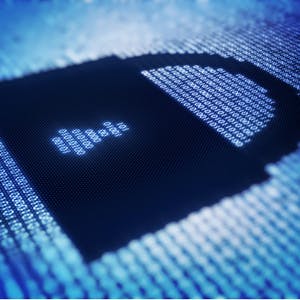Got a data back-up system, but aren’t sure whether it will hold strong if something goes wrong? Here are seven tips for making sure your data storage solution is suitable for your business.
According to Buffalo Technology national business manager Boris Shen, if a business’ data back-up strategy isn’t up to scratch, it’s at risk of a total loss one day.
“When running a small business the last thing you need is to be bogged down in IT issues. The best storage solutions will not only offer secure data storage, but will also improve business organisation and productivity,” he said.
With this in mind, here are the seven questions business owners need to ask when evaluating storage requirements:
1. How much storage space do I need? The amount of physical space required is likely to differ depending on the nature of your business. For example, a sole trader whose requirements are to keep their own financial documents will be different to a bookkeeping firm which has many clients to store, secure and manage. Generally, a two terabyte (2TB) memory is a good starting point for most small businesses, but ensure that whatever system you buy, it can expand to provide additional storage space as the business grows.
2. Am I able to set up and manage it myself? Most SMBs do not have the resources to appoint a dedicated IT professional. So selecting a storage solution that is easy to use is vital. Look for a system that is quick and simple to install, and easy to manage on an ongoing basis. The best NAS (network attached storage) systems will have an intuitive user interface based on Windows, which most professionals will be able to navigate themselves.
3. Can I share information between different staff members? Multiple user access is an important function for anyone operating a business with more than one employee or with plans to grow. Centralised storage lets all staff access shared files, increasing efficiency and removing the hassle and confusion of locating individually-managed files or duplications. Also, does your storage solution enable remote access? Choosing a NAS with remote access provides the flexibility to work from other locations, such as home, customer sites or while travelling.
4. How do I keep my documents secure? Security is one of the most important considerations when it comes to storage. NAS solutions minimise security risks as users control who has access to network data by managing different levels of password protected access to centralised files and email. With the growing trend towards storing files on third-party hosted services (ie. cloud), businesses need to keep in mind that access to the cloud can be interrupted if your internet connection goes down. It is also important to carefully review the terms and conditions when signing up to cloud services to ensure that the host company cannot inspect documents held or reuse the information in them.
5. How do I ensure quick access to my important documents? Productivity, fast transfer of large files and access from multiple computers is a top priority. Look for a solution that offers top class performance such as a high speed central processing unit (CPU), fast memory (such as DDR3), and USB 3.0 support – which is 10 times faster than the previous version.
6. What would happen to your information if you had a blackout? It’s important to consider what would happen if you lost your backed-up data. You can ‘backup your backup’ by using NAS solutions that have a feature called ‘failover’. In case of an emergency, failover safeguards your work by automatically switching to a second, independent NAS unit. This ensures that your files will be protected, even in the event of a system crash. The best NAS also feature a built-in battery to provide an uninterruptible power supply, which can compensate for brownouts and power surges, by safely shutting down the system if this occurs.
7. How much can I afford to spend? It’s easy to get turned off by huge price tags, with some enterprise-level systems costing upwards of $20,000. However, there are many affordable solutions available, with basic NAS devices costing from $500.

